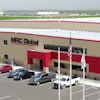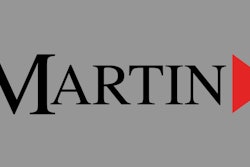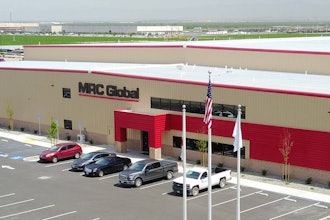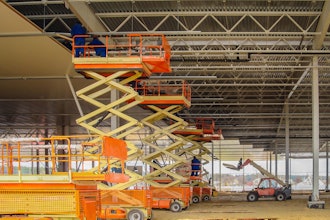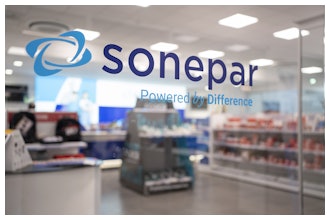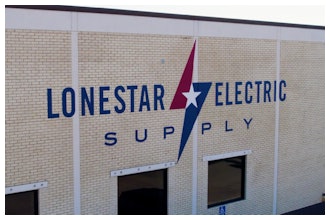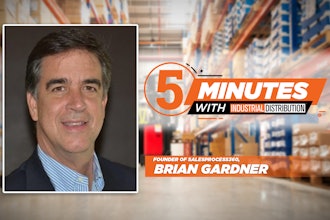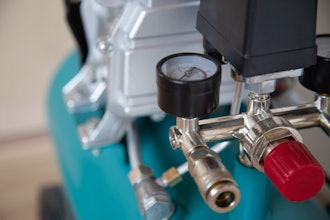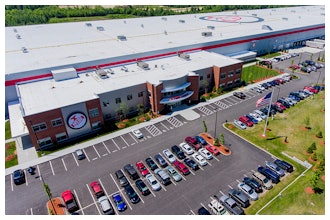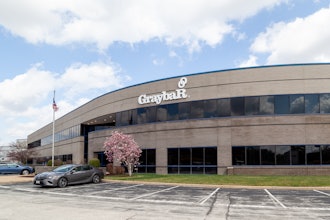WASHINGTON (AP) — It seems Washington is all ears these days.
President Barack Obama says he'll take a great idea to fix the economy anywhere he hears it. The Republican leaders in Congress can't say enough how determined they are to "listen to the American people."
OK. Here goes.
We want less debt, lower taxes, more trade, less trade, "less talk and more walk," a brand new New Deal, a private sector renaissance, money for trains and roads, easier credit, a clampdown on CEO pay, more immigration, less immigration, government off our backs, a safer safety net, cheaper health care, the dismantling of Obamacare — and how about some energy derived from burning algae?
Plus a new tone in Washington.
All in a New York minute.
The Associated Press asked people across the country to serve up their ideas to set the economy straight, a challenge underscored Friday when the jobless rate climbed to 9.8 percent, topping 9 percent for a record 19 straight months. They answered in a cacophony of voices, from the corporate office to the cafe.
America is not just a tea party. It's a coffee shop in Texas, too. It's a union hall in New York and it's Silicon Valley in California.
___
TALENT MAGNET
In Menlo Park, Calif., venture capitalist Marc Andreessen, an online pioneer who co-founded Netscape Communications, said the "single biggest thing we could do to accelerate the economy by far is to increase immigration."
"We have this bizarre paradox," he says, "where we have the world's best research universities, we have the smartest people who come from all over the world to come to study. They end up getting degrees in computer science, electrical engineering and chemical engineering and then we kick them out of the country. It's just absolutely crazy.
"If they were able to stay here to work for other companies and start other companies, we would have so much more economic growth. It would be just amazing. What we are doing now is just completely self-destructive."
The U.S. offers 65,000 visas a year for foreigners with advanced skills sought by U.S. companies, plus 20,000 visas for people who graduate from U.S. schools with a master's or higher in certain fields. Some companies complain the visas are not granted quickly enough.
___
COFFEE PARTIER
If the U.S. goes begging for brainiacs, that means plenty of opportunity for people such as Ulises Aranda, 24, of the Dallas suburb of Farmers Branch. He graduated with a master's in mechanical engineering in May and had no shortage of job offers. He chose to work for his father's engineering construction firm. To him, the economy will grow if students pick the right fields and buckle down.
"There's plenty of jobs out there for engineering and science majors," he said from the patio of Dunn Bros Coffee. "But people aren't really graduating with those degrees. I spent my six years in college, working hard. I busted my butt and had no social life. Now I have a job."
___
CREDIT CRUNCH
Larry Karel, 71, of Aventura, Fla., owns a company that produces furniture shows around the country. He says the small businesses that exhibit at his shows are starved for loans.
"I never heard of so many companies that are putting their exhibit fee on a credit card," he said. Without loans, businesses can't create jobs and people can't buy — and furnish — new homes. "It's a vicious circle."
___
DOWN WITH FREE TRADE
"I'm not a die-hard Democrat, die-hard Republican — I'm a 'what-are-you-going-to-do?' die-hard," said Michael Walker, 54, of Corning, N.Y. He has taken a temporary leave as a production worker at Corning Inc., the world's biggest maker of glass for flat-screen televisions, to work for the union.
He says free-trade practices and outsourcing have devastated manufacturing, and the ripple effects now are touching the public sector. Both political parties, he said, "acknowledge they understand what's wrong but none of them want to do anything with it."
More than half of Corning's 24,500-strong payroll is now based outside the United States, he said. Walker sees economic decline affecting teachers, municipal workers and other public servants like never before.
"They've never quite understood this whole battle we've had in the private sector because they've never ever been affected by a real downturn in the economy. You're having communities and states looking at denying benefits to community employees and state employees because you've eroded the tax base to a point where nobody can sustain themselves."
That opinion is echoed in the North Carolina foothills of the Appalachian Mountains, where Scott Miller, 50, chief business recruiter for struggling Catawba County, wishes U.S.-made products could be given a strong tax advantage.
"If you're going to expect jobs to be in America, you should buy American. Every consumer, in their purchasing habits, affects their own job. I know that's a little more difficult, probably, to buy a shirt that's made right here, but do your best."
___
UP WITH TRADE
Honeywell is a $34 billion company with 130,000 workers, half outside the U.S. It makes jet engines, the cockpit on the space shuttle, home thermostats, equipment for refineries and much more. The AP asked Dave Cote, chairman and chief executive, for ideas to expand the U.S. economy when he was traveling with Obama in India, where the New Jersey-based company employs 11,000.
Trade works for both sides, Cote said. "The thing I can point to is that since the Phoenicians, 3,000 or 4,000 years ago, it works."
"As you grow everywhere," he said. "you start to add jobs. In the U.S., for example, we've been adding employment over these last few months — things have turned and we've actually started adding at the same time that we're growing globally.
"So this is not a zero-sum game, and it's a tougher concept to get across, but, God, it's the truth."
Yet Cote sees something even more important for the government to do than to encourage the free flow of commerce. It relates to his work on Obama's bipartisan deficit commission, which produced a report Friday recommending $4 trillion in budget savings over a decade by curbing Social Security, raising taxes and deeply cutting spending.
"That debt problem needs to be solved or the seeds of the next recession have already been planted," he told AP. "If that doesn't get sorted out, then almost nothing else we do is going to matter."
He said: "People want to point to stimulus spending, Bush tax cuts, or Obamacare and blame that — and those are all sideshows."
___
INNOVATION NATION
In Durham, N.C., Bill Brown co-founded 8 Rivers Capital, a private equity firm supporting a lab that is designing and testing systems to make renewable energy from the burning of algae. The government has put money into the project.
"The private sector has some things that would truly change the economy," he says. "Yet it needs government support right now."
Brown says that when President Ronald Reagan successfully pushed for a higher investment tax credit and hefty upfront depreciation allowances in the early 1980s, leading-edge businesses took off.
"Without fostering this sort of innovation, we don't have a hope of using the productivity engine to get out of our current economic rut."
___
CALL A MEETING
Indra Nooyi is chairman and CEO of PepsiCo., the New York-based multinational beverage and food company employing 110,000 in the U.S. The Indian-born executive is one of the most powerful women in business.
"My dream would be that the president convenes existing or retired CEOs and says, 'Go to work and figure out how we prepare a long-term plan for the country so we can grow the country's manufacturing base,'" she said.
"I think as a country we have to sit down and talk about the sectors that we want to create in the United States over the next 20-30 years — I mean, almost a business plan for the country — and then figure out how we're going to plan, fully invest behind these sectors, so that we can actually get manufacturing jobs back to the United States and keep a base of employment going well into the future."
___
MORE WALK
Bearded, blue-eyed and lean, Dallas barista Adam Gaynier, 24, says it will take more than meetings to make people believe in their economic future again. "Less talk and more walk," is what he wants from government.
"You've got to back up what you're saying with physical change that we can see. American people don't care about what we don't see. We care about the stuff we deal with on a day to day basis, buying groceries, having enough money to put gas in the car, the price of gas going up."
But words and meetings matter to Mark Peters, 53, who founded Piedmont Carolina Nursery in Colfax, N.C., in 1982, right after college. He employs 28 people. A registered independent, Peters says the economy would get a real lift if people were convinced that Obama and congressional Republicans were committed to working together.
From that, he says, a real plan to grow the economy could be found.
"More than anything right now, it's just having that confidence that everything's OK, and I'm not going to lose my job, and I'm going to be able to pay my bills."
___
Contributing to this report were AP writers Linda Stewart Ball in Dallas; Emery P. Dalesio in Raleigh, N.C.; Ben Dobbin in Rochester, N.Y.; Matt Sedensky in Miami; Michael Liedtke in San Francisco; Erica Werner in Mumbai, India; Suzanne Gamboa in Washington; and Corey Williams in Detroit.

